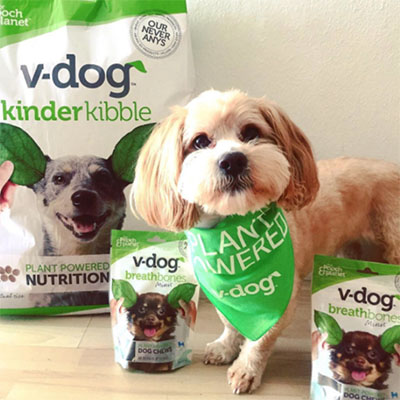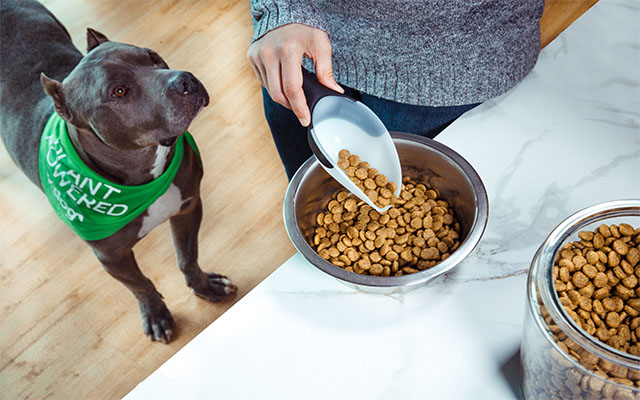V-dog, a leading dog food company committed to providing 100% vegan products, is offering advice to pet parents who want to switch their dogs’ diets but are wary of a rocky transition.
First, there are many reasons a pet parent may elect to switch their dog’s food, including graduating a puppy to adult food, eliminating a discovered food allergy or simply to introduce a higher-quality brand of dog food. Whatever the reason, it’s always great to keep a few points in mind to most properly transition dogs to a new food.
“Even though dogs sometimes willingly eat some hilarious or terrible things, it’s important to best prepare their tummy for a smooth transition to their new food,” said Lindsay Rubin, vice president of v-dog. “A quick diet switch can lead to tummy troubles or other issues, so we urge all pet parents to be patient and ease their pups into the new diet over about a one-week period.”
Rubin and the v-dog team recommend the following tips for switching your dog’s diet in the most comfortable way possible:

- Know the ingredients. The pet food industry has a bad reputation for poor quality ingredients and by-products. When looking for a new brand, make sure the ingredients chosen are high-quality, allergen-friendly and that the company conducts third-party quality and nutrition testing. Most companies will answer your questions if you email their support email address or fill out the contact form on their site.
- Have a plan for the switch. Switching your dog’s diet gradually over the course of a week is usually the easiest transition for a dog. V-dog recommends starting on day one of the transition by mixing one-third of your dog’s old food with two-thirds of their new food, and gradually transition to 100 percent of the new food over a five- to 10-day period. This transition time gives the dog’s stomach more time to adjust to the new formula’s ingredients. During transition, a short period of soft stool can be normal, but be sure to consult your veterinarian if your dog experiences any lingering symptoms or changes in behavior towards the end of or after the transition.
- Consider an all-natural or plant-based diet. Studies show that most food-related allergies in dogs stem from animal products like beef and chicken. Since dogs are physiologically omnivores, they are able to digest and make excellent use of starch. A completely plant-based food has proven to be an excellent, nutritionally-dense solution for sensitive, allergy-prone dogs.
More at V-dog.























































